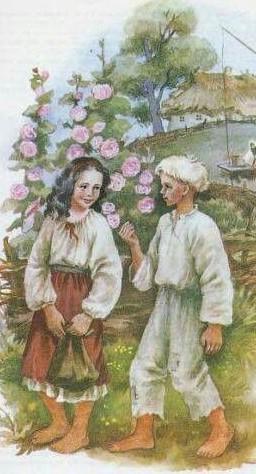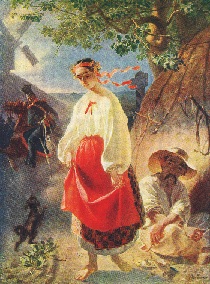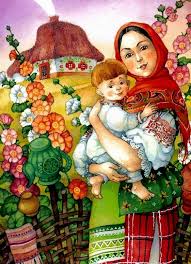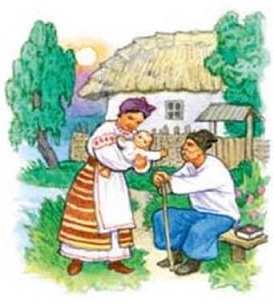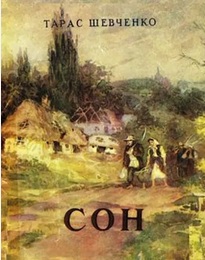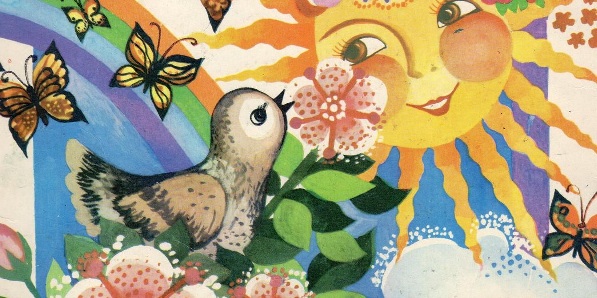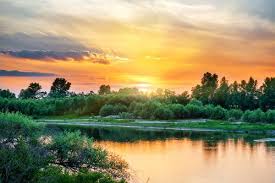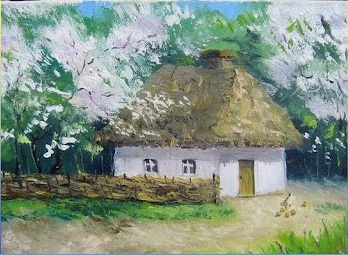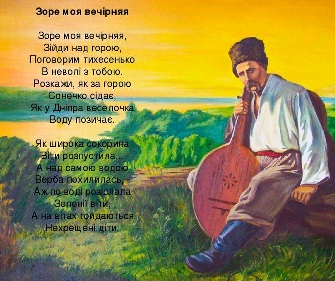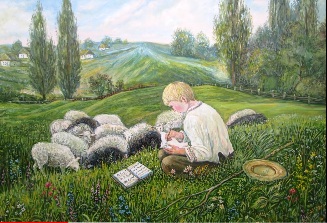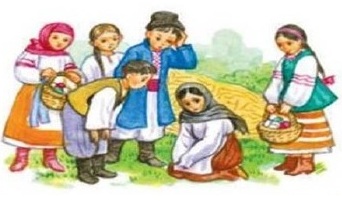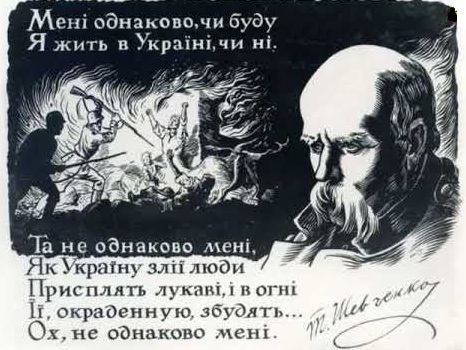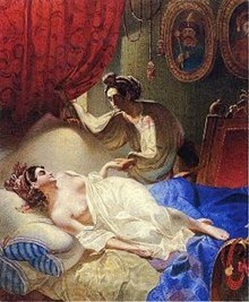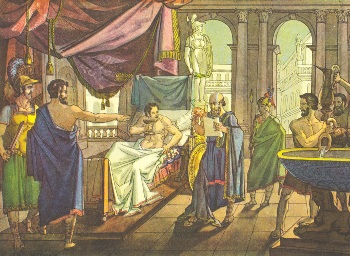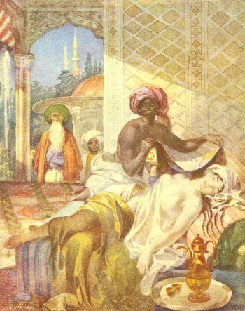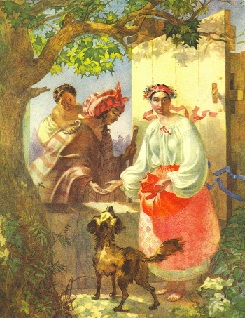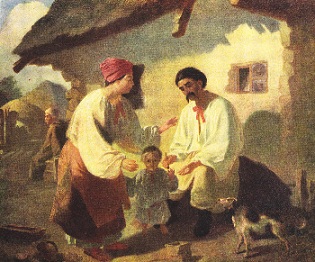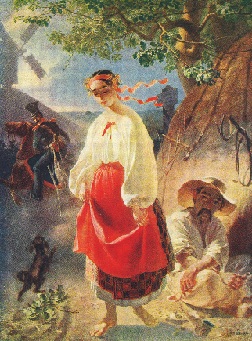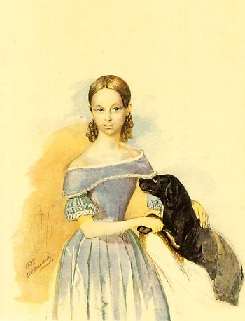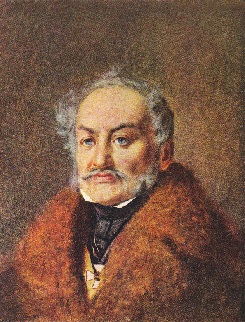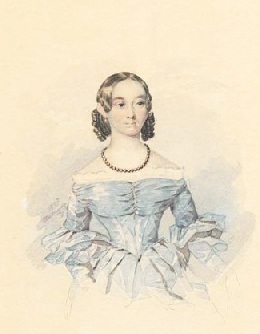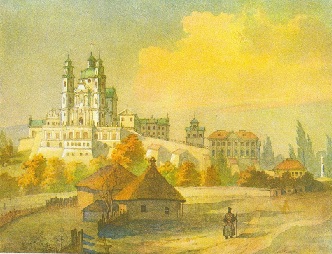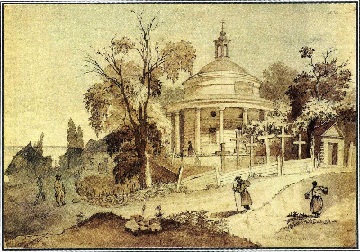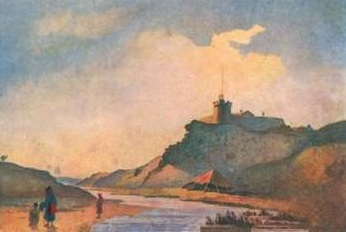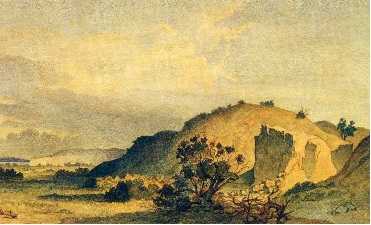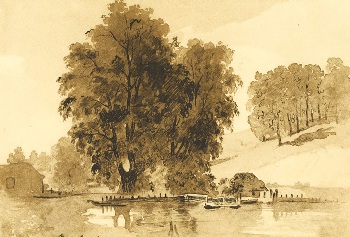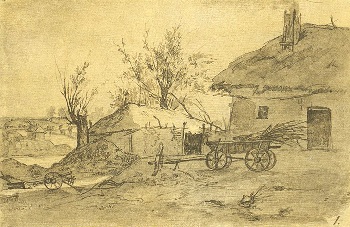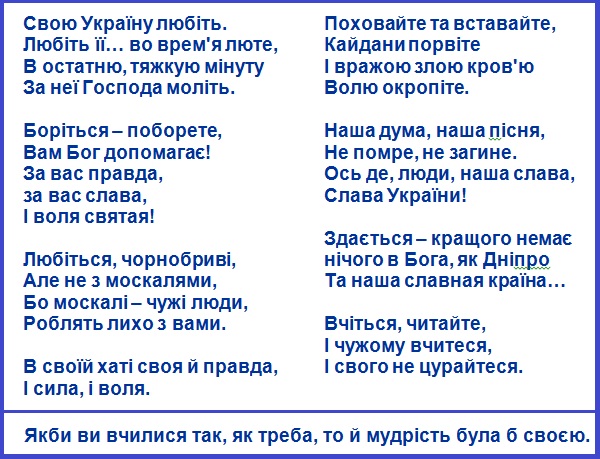Love your Ukraine
Love your Ukraine
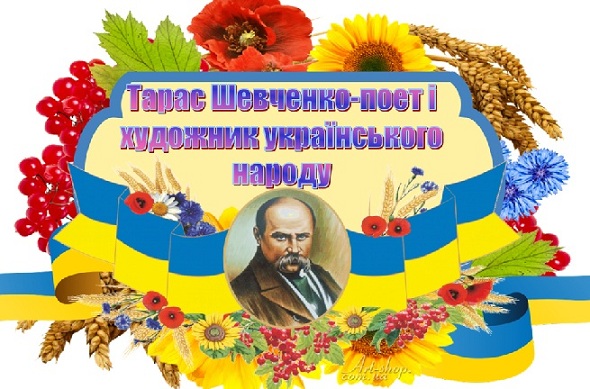
To the 210th anniversary of the birth
Taras Hryhorovych Shevchenko
(1814-1861)

Today, March 9, 2024, we celebrate the 210-th anniversary of the birth of Taras Hryhorovych Shevchenko, Ukrainian writer, classic of Ukrainian literature, artist, academician of the Imperial Academy of Arts (1860), national hero and symbol of the Ukrainian people.
Love your Ukraine.
Love her... in the fierce time,
In the last, difficult minute
Pray to the Lord for her.
With these immortal words, the glorious son of the Ukrainian people, Taras Hryhorovych Shevchenko, appeals to all of us, calling for unity.
Glorious Kobzar, whose words now sound more prophetic than ever, a world-renowned poet, an incredibly talented artist... A multifaceted personality whose lines of poetry still cut the eyes and ears of our enemies... Taras Shevchenko is a national symbol of the Ukrainian people, who awakened the Ukrainian soul and established the spiritual the basis of the people's struggle against enslavement by the Russian Empire.
Being a man of universal gifts and interests, Taras Shevchenko left behind a huge creative legacy. From under the poet's pen came wonderful works and, of course, the famous collection of poems "Kobzar". His work was of decisive importance in the formation and development of the new Ukrainian literature and became a source of inspiration for many modern artists.
Taras Hryhorovych Shevchenkois a great and undying glory of the Ukrainian people. In the person of Shevchenko, the Ukrainian people seemed to pour out their best spiritual forces and chose him as the singer of their historical glory and social misfortune, their own hopes and aspirations. Kobzar tuned his lyre to the opinions of the people, that is why everything that was hidden in the very depths of his heart came to life in his words. With that treasure - the word of their best son - the Ukrainian people go out to all the people of the earth.
Taras Shevchenkolived 47 years: 24 of them were in serfdom, 10 in exile, and the rest under the supervision of gendarmes. In general, he was an infrequent visitor to the Motherland... But wherever he was, he always remained a son of his land, remembered it and missed it like a mother. That is why Ukraine became the main image in Shevchenko's work, surrounded by love and longing.
For more than a century and a half, the great Shevchenko, Kobzar and the Prophet have not been with us, but every year seems to bring him closer to us. His work in the context of recent events does not allow us to doubt the veracity of his prophecies. We read the lines of "Kobzar" more consciously and make sure that they are all addressed to us, Ukrainians of the 21st century.
Taras Shevchenko, poet
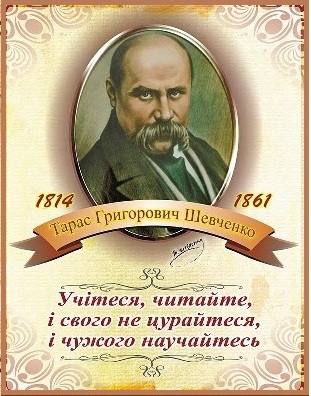
The poems of Taras Hryhorovych Shevchenko are an inexhaustible source of wisdom. Shevchenko's poems, written more than a century ago, are still relevant today. Let's turn to "Kobzar" more often, seeking in it answers to such painful questions of today, because it was not for nothing that the poet urged: "And learn from someone else's, and do not shy away from your own"!
Everyone should know the poems of Taras Hryhorovych Shevchenko, because "Kobzar" is a second Bible for Ukrainians. You unfold it, and: "Whatever, it seemed like words... Words and a voice are nothing anymore. And the heart is beating - it will come alive when you hear them...". And Shevchenko's words are really special, in particular because they are still relevant.
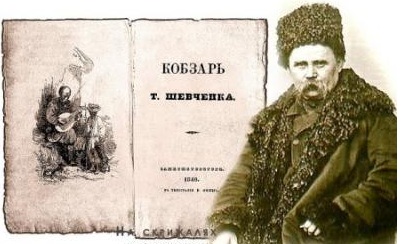
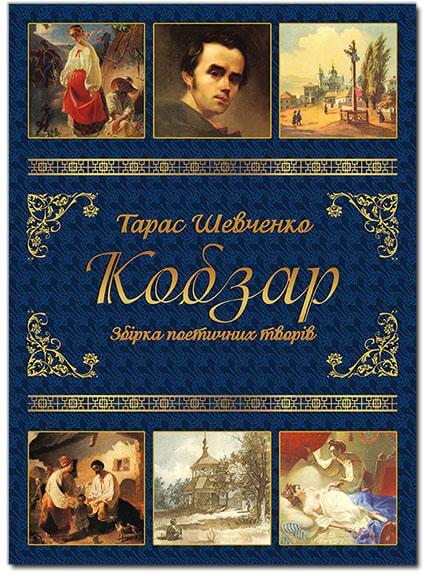
TARAS SHEVCHENKO'S POEMS ABOUT UKRAINE
To my dead, alive, and unborn compatriots in Ukraine
and my friendly message is not in Ukraine
The message "To both the dead and the living..." is one of Shevchenko's most outstanding works. It can be perceived as a wise testament of a great man. In the message, the Great Prophet predicts terrible fratricidal wars, when the people will no longer tolerate hypocrisy, and also chastises Ukrainians for indifference to their own history, for empty talk and the activities of "pseudo-patriots".
І мертвим, і живим, і ненарожденним землякам моїм в Украйні
і не в Украйні моє дружнєє посланіє
І смеркає, і світає, день божий минає,
І знову люд потомлений, і все спочиває.
Тілько я, мов окаянний, і день і ніч плачу
На розпуттях велелюдних, і ніхто не бачить,
І не бачить, і не знає – оглухли, не чують;
Кайданами міняються, правдою торгують.
І Господа зневажають, людей запрягають
В тяжкі ярма орють лихо, лихом засівають…
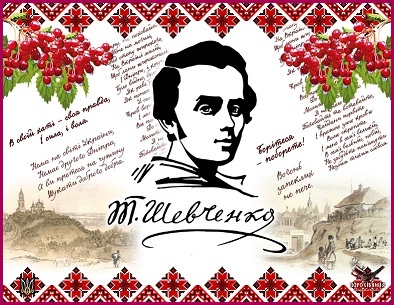
Розкуйтеся, братайтеся, у чужому краю
Не шукайте, не питайте того, що немає
І на небі, а не тілько на чужому полі.
В своїй хаті своя й правда, і сила, і воля.
Нема на світі України, немає другого Дніпра,
А ви претеся на чужину шукати доброго добра,
Добра святого. Волі! волі! братерства братнього! Найшли,
Несли, несли з чужого поля і в Україну принесли
Великих слов велику силу, та й більш нічого. …
Не дуріте самі себе, учітесь, читайте,
І чужому научайтесь, й свого не цурайтесь.
Бо хто матір забуває, того бог карає,
Того діти цураються, в хату не пускають
Благословіть дітей своїх твердими руками
І діточок поцілує вольними устами.
І забудеться срамотня давняя година,
І оживе добра слава, слава України.
(фрагмент)
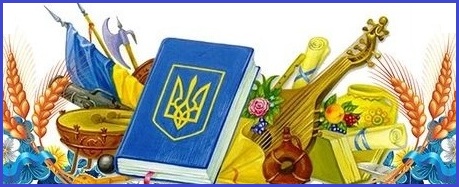
"THOUGHTS ARE MY THOUGHTS..."
Ukraine in Shevchenko's work became the main image, shrouded in love and longing. The image of Ukraine in the poem "Thoughts, My Thoughts..." appears just like this, distant and inaccessible.
"ДУМИ МОЇ ДУМИ…"
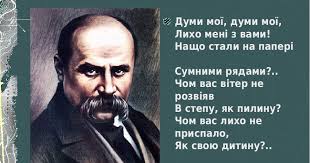
Думи мої, думи мої, лихо мені з вами!
Нащо стали на папері сумними рядами?..
Чом вас вітер не розвіяв в степу, як пилину?
Чом вас лихо не приспало, як свою дитину?...
За карії оченята, за чорнії брови
Серце рвалося, сміялось, виливало мову,
Виливало, як уміло, за темнії ночі,
За вишневий сад зелений, за ласки дівочі...
За степи та за могили, що на Україні,
Серце мліло, не хотіло співать на чужині...
(фрагмент)
"W i l l"
No poem in the Ukrainian language has gained such wide recognition among the world as Shevchenko's "Will".The work is imbued with the desire to see a beautiful person on a beautiful land. The poet believes that Ukraine will become independent, people will come to their senses, and lies will be destroyed. And we must live up to his expectations, overcome all difficulties on our country's path to a happy future. Let his "Will"become our guide.
З А ПО В ІТ
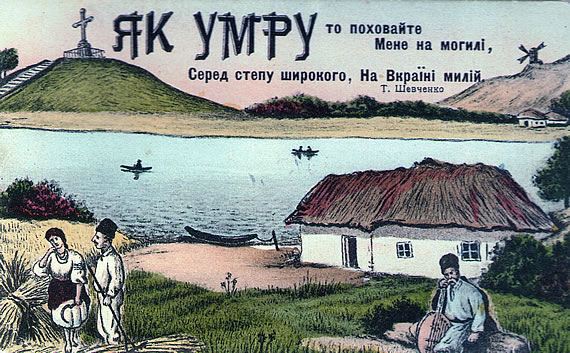
Як умру, то поховайте мене на могилі,
Серед степу широкого, на Вкраїні милій,
Щоб лани широкополі, і Дніпро, і кручі
Було видно, було чути, як реве ревучий.
Як понесе з України у синєє море
Кров ворожу...отойді я і лани, і гори —
Все покину і полину до самого бога
Молитися... а до того я не знаю бога.
Поховайте та вставайте, кайдани порвіте
І вражою злою кров'ю волю окропіте.
І мене в сем'ї великій, в сем'ї вольній, новій,
Не забудьте пом'янути незлим тихим словом.
SHEVCHENKO'S POEMS ABOUT LOVE
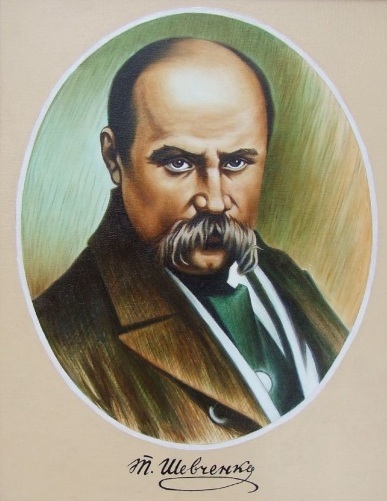
Love is happiness, the poet proves, and its absence is a great sorrow. Betrayal is what turns love from heaven to hell. The first love of young Taras Shevchenko was Oksana, his age. Relatives and friends were sure that the young people would get married as soon as they reached the appropriate age. But hopes were in vain - Taras had to go to Vilna in the company of his master Pavel Engelhardt. The separation was unexpected and long. All his life, Shevchenko remembered the girl he once loved and dedicated a poem to her.
WE VKUPOCHIANS USED TO GROW UP
|
|
МИ ВКУПОЧЦІ КОЛИСЬ РОСЛИ Ми вкупочці колись росли, Одружимо їх.Не вгадали.
Помандрувала А потім знов кудись пішла, (фрагмент) |
In 1843, Taras Shevchenko went to Ukraine and met there Varvara Repnina, to whom he dedicated the poem "Tryzna", as well as Anna Zakrevska, to whom he later dedicated the poem "G. Z.".
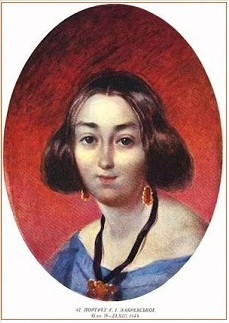
Закревська Г.І.
"G. Z."
Г. З.
Немає гірше, як в неволі
Про волю згадувать. А я
Про тебе, воленько моя,
Оце нагадую. Ніколи
Ти не здавалася мені
Такою гарно-молодою
І прехорошою такою
Так, як тепер на чужині,
Та ще й в неволі. Доле! Доле!
Моя ти співаная воле!
Хоч глянь на мене з-за Дніпра,
Хоч усміхнися ....
І ти, моя єдиная, встаєш із-за моря,
З-за туману, слухняная рожевая зоре!
І ти, моя єдиная, ведеш за собою
Літа мої молодії, передо мною
Ніби море заступають широкії села
З вишневими садочками і люде веселі….
А ти, мій покою! Моє свято чорнобриве,
І досі меж ними тихо, пишно походжаєш?
І тими очима, аж чорними — голубими,
І досі чаруєш людські душі? Чи ще и досі
Дивуються всує на стан гнучий?
Свято моє! Єдинеє свято!..
Усміхнися, моє серце, тихесенько-тихо,
Щоб ніхто і не побачив… Та й більше нічого.
А я, доленько, в неволі помолюся богу.
1848р, Косарал (фрагмент)
The last love of the poet was the 19-year-old St. Petersburg mercenary Likera Polusmakova, to whom Taras Shevchenko dedicated the poems "Likeri", "L. I will build a house and a room ... ".
L i k e r i
Л и к е р і
Моя ти любо! Мій ти друже!
Не ймуть нам віри без хреста,
Не ймуть нам віри без попа
Раби, невольники недужі!
Заснули, мов свиня в калюжі,
В святій неволі! Мій ти друже,
Моя ти любо! Не хрестись,
І не кленись, і не молись нікому в світі!...
Моя ти любо! усміхнись,
І вольную святую душу,
І руку вольную, мій друже,
подай мені…
(фрагмент)
Kobzar's ballads "Prychynna", "Poplar", "Drowned" tell about unusual people who are capable of loyally and tenderly loving or hating. Sincere sympathy is evoked by the heroine of "Prychynnaya", an angry court - a character from "Drowned" who drowned her own daughter out of jealousy. The ballad "Poplar" is touching, in which the main character dies because she cannot be without her lover, who "went and died." In the ballad, this death is presented as a transformation into a poplar tree.
POPLAR
Т О П О Л Я
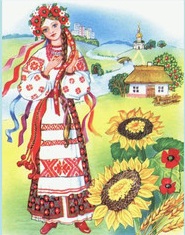
Полюбила чорнобрива козака дівчина.
Полюбила – не спинила:пішов – та й загинув...
Якби знала, що покине – було б не любила;
Якби знала, що загине — було б не пустила;
Якби знала – не ходила бпізно за водою,
Не стояла б до півночі з милим під вербою…
Минув і рік, минув другий –козака немає;
Сохне вона, як квіточка; мати не питає:
"Чого в'янеш, моя доню?" стара не спитала,
За сивого, багатого тихенько єднала.
"Іди, доню, – каже мати, – не вік дівувати!
Він багатий, одинокий – будеш панувати".
"Не хочу я панувати, не піду я, мамо!
Рушниками, що придбала, спусти мене в яму.
Нехай попи заспівають,а дружки заплачуть,
Легше, мамо, в труні лежать, ніж його побачить"…
Отак тая чорнобрива плакала, співала...
І на диво серед поля тополею стала.
По діброві вітер виє,гуляє по полю,
Край дороги гне тополя до самого долу…
(фрагмент)
SHEVCHENKO'S POEMS ABOUT MOTHER AND FAMILY
Through all his work, Taras Shevchenko conveyed respect for women, and especially for a mother who gives all of herself to her child. This attitude towards women has long been characteristic of the Ukrainian people, but the poet goes further - he glorifies the motherly love of underprivileged women, coverings from which people turned away. For the first time, this theme sounded in the poem "Kateryna". The author does not justify Kateryna's extramarital relationship with the officer, but neither does he curse or blame her. People often unfairly punish children for the sins of their parents, and this is exactly whatKateryna was afraid of. She died, leaving her child to fend for herself, her heart could not bear the fact that the father turned away from his own son.
|
K a t e r y n a
К а т е р и н а Кохайтеся, чорнобриві, та не з москалями, Бо москалі – чужі люде, роблять лихо з вами… Не слухала Катерина ні батька, ні неньки, Полюбила москалика, як знало серденько. Полюбила молодого, в садочок ходила, Поки себе, свою долю там занапастила… Сидить батько кінець стола, на руки схилився; Не дивиться на світ божий: тяжко зажурився. Коло його стара мати сидить на ослоні, За сльозами ледве-ледве вимовляє доні:" Що весілля, доню моя? А де ж твоя пара? Де світилки з друженьками, старости, бояре? В Московщині, доню моя! Іди ж їх шукати, Та не кажи добрим людям, що є в тебе мати…
(фрагмент) |
In our paradise on earth
У нашім раї на землі У нашім раї на землі
Буває, іноді дивлюся, Тепер їй любо, любо жити.
Моє! – І дивиться на його, Щоб людям, бачте, показать (фрагмент)
|
++++++++++++++++++++++++++++++++++++++++++++++++++++++++++
And I still dream...
І досі сниться... І досі сниться: під горою – Де ж те лихо? |
S l e e p
С о н Нa панщині пшеницю жала; |
WORKS OF TARAS SHEVCHENKO ABOUT NATURE
+++++++++++++++++++++++++++++++++++++
With inspiration and love, Taras Shevchenko praises the beauty of his native land. In the poems "Cherry orchard around the house", "Spring has risen", "Zore my evening dawn" we see pictures of peaceful life: picturesque Ukrainian houses, green gardens, cheerful singing of girls, peasants returning from the fields. The harmony of man and nature was the leading motif in Taras Shevchenko's poetry.
VILLAGE 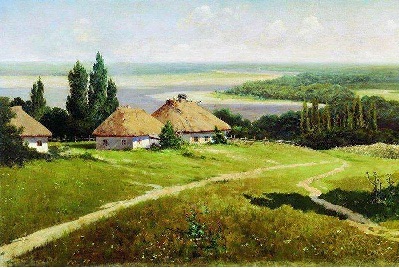
С Е Л О
Село! І серце одпочине...
А там і ліс – і ліс, і поле,
ВСТАЛА ВЕСНА
Встала весна, чорну землю
|
IT IS DAWN, THE EDGE OF
THE SKY IS ON FIRE
СВІТАЄ, КРАЙ НЕБА ПАЛАЄ Лечу... дивлюся: аж світає, Тихесенько вітер віє, Сади рясні похилились, І все то те, вся країна, І нема тому почину, (фрагмент) |
++++++++++++++++++++++++++++++++++++++++++++++++++++++++
Cherry orchard near the house
Садок вишневий коло хати Садок вишневий коло хати,
Поклала мати коло хати |
Dawn is my evening
Зоре моя вечірняя Зоре моя вечірняя, А над самою водою |
AUTOBIOGRAPHICAL POEMS
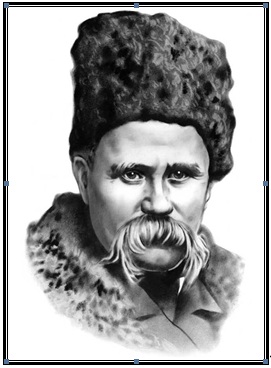
Taras Shevchenko dedicated many of his poems to the fate of orphaned children, because he himself became an orphan at a very early age and therefore knew how difficult it is to live without parents, without any kind of support among people. Reading the lines of such works as "And gold and dear...", "Thought", "At Easter on the straw", you understand what a difficult fate children who are left alone in the world have. Deprived of parental love and affection, orphans are forced to rely on human kindness and mercy. They walk in rags, most of the time barefoot, because they have no shoes, and interrupt themselves with a piece of bread. In order to somehow survive and not die of hunger, children are forced to go to work, to work hard, and therefore to be completely dependent on their masters.
The plots of the poems "I've passed the thirteenth" and "If you knew, gentlemen..." were taken from his own life. In terms of emotional perception and atmosphere, these two poems are radically different.
I'm past thirteen
Мені тринадцятий минало Мені тринадцятий минало. (фрагмент) |
For Easter on straw
На Великдень на соломі На Великдень на соломі |
++++++++++++++++++++++++++++++++++++++++++++++++++++++++++++
If you knew, gentlemen...
Якби ви знали, паничі… Якби ви знали, паничі, Не називаю її раєм, А сестри! сестри! Горе вам, (фрагмент) |
And golden and expensive...
І золотої й дорогої… І золотої й дорогої
А ще до того, як побачу Мов одірвалось од гіллі,
Мені здається, що се я,
Мені здається, що ніколи
Що він не знатиме, де дітись
|
++++++++++++++++++++++++++++++++++++++++++++++++++++++++++++
I don't care if I...
Мені однаково, чи буду...Мені однаково, чи буду Молися, сину: за Вкраїну Та не однаково мені, (В казематі 1847) |
Days pass, nights pass
Минаютьдні, минаютьночі Минають дні, минають ночі,
Доле, де ти! Доле, де ти?
Страшно впасти у кайдани,
Доле, де ти, доле, де ти?
(21 грудня 1845 р., В’юнище.) |
* * * * * * * * * * * * * * ** * * * * * * * * * * * * * * * *
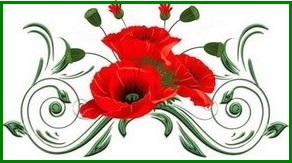
TARAS SHEVCHENKO IS AN ARTIST
Taras Shevchenko is known in the world as a poet, but his work as an artist is no less rich and interesting
Taras Hryhorovych Shevchenkois a multifaceted genius and one of the brightest figures of Ukrainian fine art of the middle of the 19th century. He showed himself as a painter, etcher, a master of drawing, watercolors, engravings, tried himself in sculpture and carving.
Shevchenko'sartistic heritage is very large: more than 1000 portraits, landscapes, historical, mythological and genre compositions are now known. He made a great contribution to the development of the household genre and became its founder in Ukrainian art.
His etchings were especially recognized, for them in 1860, by the decision of the Council of the St. Petersburg Academy of Arts, he was elected academician of copper engraving. In 1844, he made a series of etchings called "Picturesque Ukraine", in which he depicted scenes from the life and everyday life of the simple Ukrainian people, their historical past, as well as picturesque landscapes of their native Ukraine: "Judiciary Council", "Old Men", "In Kyiv", "Vydubytsky Monastery" and others. In these works, Shevchenko showed his great artistic skill, which was manifested in the ability to easily operate light and shadow, to achieve transparency of tones.
A small part of paintings and drawings from the artistic heritage of Taras Hryhorovych Shevchenko is presented.
|
Maria, watercolor, 1840 |
Alexander the Great |
In the harem, watercolor, 1843 |
|
Gypsy fortune teller, |
Peasant family, canvas/oil, 1843 |
Catherine, canvas/ |
|
Portrait of a girl with a dog, watercolor, 1838 |
Portrait of Mykola Repnin, canvas/oil, 1848 |
Portrait of Kateryna Abaz, watercolor 1837 |
|
|
"Askold's grave", 1846 |
|
"Fort Kara-Butak", paper, watercolor, |
"Mountainous coast of Nikolai Island", |
|
In Lykhvin, ink/pen, 1859 |
Peasant yard, watercolor, 1845 |
For a long time, Shevchenko's artistic heritage was in private collections and was not available to the general public. People who got the artist's works often did not imagine their value. Most of the paintings and drawings are kept in the Taras Shevchenko National Museum, but many of the artist's works are in the Lviv National Museum named after A. Sheptytskyi, in Russia and Kazakhstan.
* * * * * * * * * * * * * * * * * * * * * * * * * * * * * * * * * * *
In his poems, Taras Shevchenko begs us to love our Ukraine, calls us to fight against our enemies. Today, Ukrainians find strength, faith and inspiration in his lines.We know that Ukraine will win, and human rights and freedom will triumph.
Excerpts from Taras Shevchenko's poems that inspire struggle:
Мені однаково, чи буду
Я жить в Україні, чи ні.
Чи хто згадає, чи забуде
Мене в снігу на чужині —
Однаковісінько мені.
Та не однаково мені,
Як Україну злії люди
Присплять, лукаві, і в огні
Її, окраденую, збудять...
Ох, не однаково мені.
Тарас Шевченко
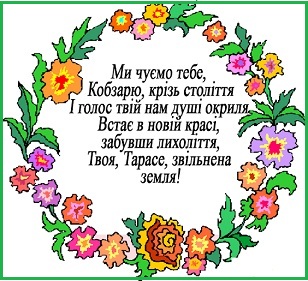
Love Ukraine
ЛюбітьУкраїну
Любіть Україну краплиночку раю,
Любіть її мову чудову, благаю.
До вас я звертаюсь, нове покоління,
Ви наше майбутнє, а ваше коріння,
В землі, що полита, козацькою кров’ю.
ЖивеУкраїна героїв любов’ю.
Любіть її гори, поля та долини,
Дніпро сивочолий і гроно калини.
Любіть її мову, таку солов’їну,
І пісню любіть, бережіть Україну!
Не маємо права її забувати,
Для нас Україна – це рідная мати!
Тоді – ми народ, тоді – ми держава!
То ж будь, патріотом, землі рідній слава!
We have no right to forget her
For us, Ukraine is our native mother!
Then we are the people, then we are the state!
So be a patriot, glory to your native land!
І на оновленій землі врага не буде, супостата,
А буде син, і буде мати, і будуть люде на землі!
And on the renewed land there will be no enemy, opposition,
And there will be a son, and there will be a mother, and there will be
people on earth!

Information


